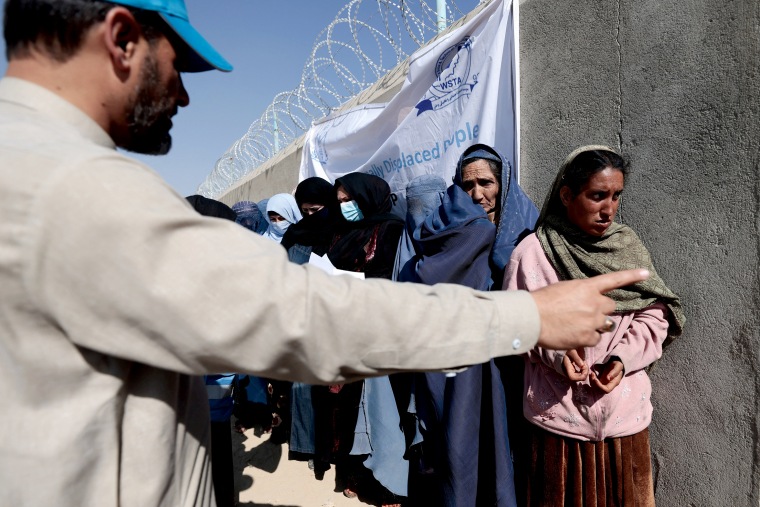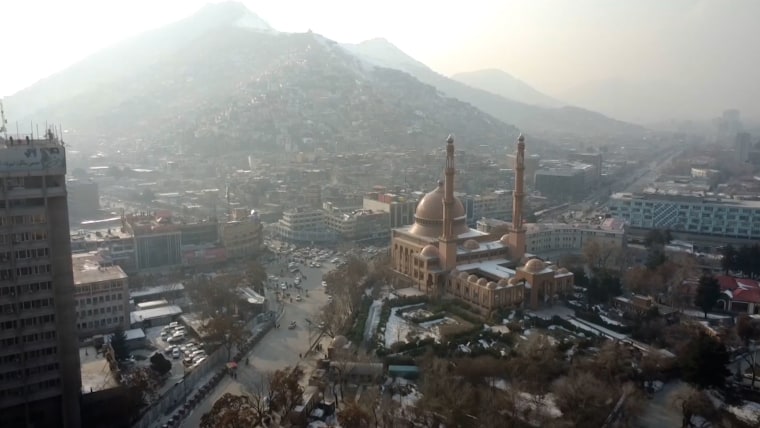WASHINGTON — President Joe Biden signed an executive order Friday freezing $7 billion in Afghan funds held in the U.S. and will seek to use that money for humanitarian aid for the Afghan people and potential legal payouts to victims of the Sept. 11 attacks.
The administration said the move was the first step in what will likely be a lengthy legal process to set up a trust fund and transfer the money from the Afghan central bank to the Federal Reserve Bank of New York. If transfer of the funds is ultimately cleared by the courts, half of the funds will be made available to Sept. 11 families pursuing legal claims against the Taliban and the other half will go to humanitarian assistance for the Afghan people.
In the highly unusual move, Biden will be using his power under the International Emergency Economic Powers Act to freeze the foreign assets. The money primarily came from international assistance given to help Afghanistan over the years and was being kept by the Afghan government in the U.S. prior to the Taliban taking control of the country in August, the official said.
“I think this is an unprecedented situation, we have $7 billion of assets in the United States that are owned by a country where there’s no government recognized,” said a senior administration official. “I think we are acting responsibly to ensure that a portion of that money can be used to benefit the people of the country.”
The families of Sept. 11 victims and other terror attacks have sued the Taliban in federal courts and have been pursing the funds held in the U.S. A senior administration official said that because the some of the funds are already tied up in legal proceedings it will be up to a court to determine if any or how much of the money goes to the victims.
The $3.5 billion that would be set aside for Afghan humanitarian aid would be separate from the broader efforts by the U.S. to provide assistance to Afghanistan, the official said. The U.S. has given $516 million to Afghanistan since August via international aid groups.
The U.N. warned last month that 23 million Afghan people are in dire need of assistance and has launched a more than $5 billion funding appeal for Afghanistan. U.N.’s World Food Program says that 8.7 million are at risk of starvation, millions of girls are not enrolled in school, and food prices are rising.

Because the move of the funds has to be cleared by a court, it will be at least several months before any of the money is available, the official said, noting that hundreds of hours of legal work have already been put in by the Biden administration to determine what to do with the assets.
If the asset transfer is cleared to a trust fund, a third party would be tasked with overseeing the money, though who that third party would be and how it would allocate the funds is yet to be determined, the senior administration official said.
There is an additional $2 billion in Afghan funds in other countries, though no other government has sought to freeze those funds.
“This approach that we’re taking heeds bipartisan calls from Congress to use the reserves to mitigate the serious and ongoing crisis in Afghanistan,” said the official, “while at the same time recognizing the importance of ongoing efforts by victims of terrorism and their families, including victims of the 9/11 attacks, to pursue other claims in court.”


